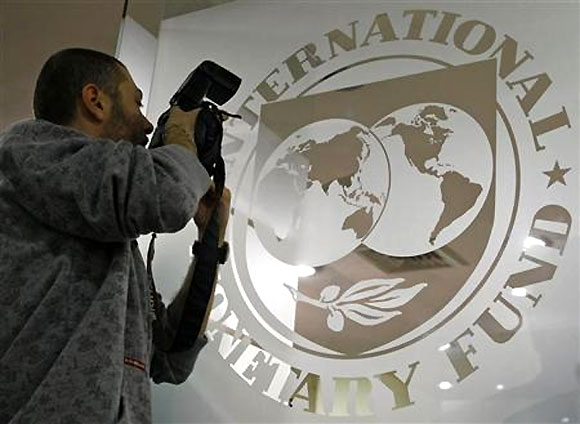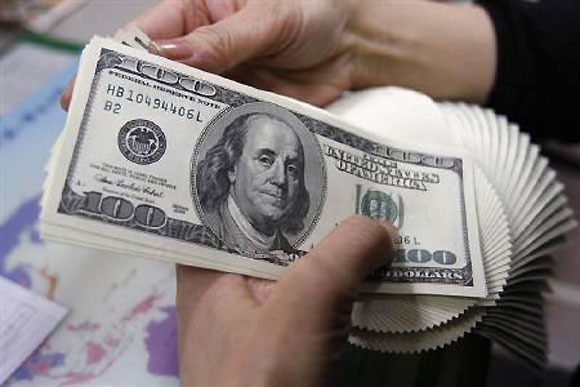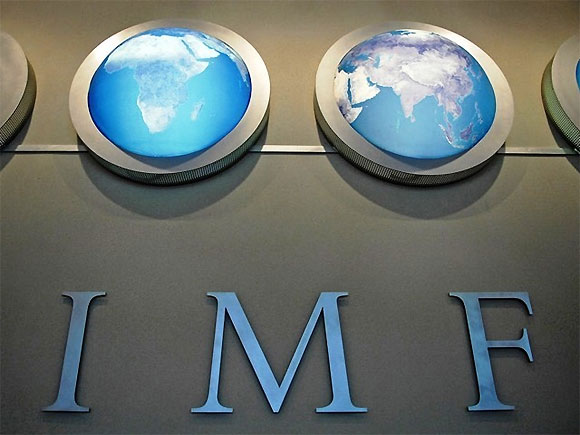
A rapidly deteriorating balance of payments may warrant that but the political climate is too risky
The buzz in government circles is too strong to be ignored. Is the Union government toying with the idea of seeking a loan from the International Monetary Fund (IMF)?
There are good reasons why the question of India seeking an IMF loan is being discussed at present. India’s balance of payments situation is showing signs of extreme stress. The current account deficit has stayed well above four per cent of gross domestic product (GDP) in each of the last two years.
In the current year, the current account deficit is likely to be marginally lower, but it will be nowhere near a comfortable or safe zone. The share of short-term debt or external loans with maturities of less than one year has risen sharply to an unsustainably high level of around $140 billion, according to some estimates.
The import cover at a little less than seven months (calculated as the period for which the foreign exchange reserves would be able to finance imports) is much higher than the 2.5 months seen in 1990-91, when India experienced one of its worst balance of payments crises.
But the deteriorating trend is clearly noticeable as evident from the manner in which the current import cover of about seven months has dwindled to less than half of what it was five years ago.
What has added to the IMF buzz is the government’s open admission that it is toying with the idea of raising additional foreign exchange resources by issuing sovereign bonds or some special instruments to attract deposits from non-resident Indians (NRI).
The government’s chief economic advisor, Raghuram G Rajan, is of the view that any bond issue can help only if it does not substitute existing deposits. In other words, the bond issue – sovereign or NRI bonds – can help only if this represents an additional flow of resources.
What could that additional resources flow be? A loan from the IMF would surely be an additional flow into the government’s balance of payments account. Moreover, an IMF loan would represent a commitment on the part of the government to take tough economic measures and this might prevent a downgrade by rating agencies.
Click on NEXT for more...

Finance Minister P Chidambaram was in Washington for four days early this month. His official fixtures showed that he was to have met a clutch of international investors, members of the House of Representatives of the US Congress, US Treasury Secretary Jacob Lew, US Exim Bank officials and Walmart representatives.
No finance minister will ever make his meetings with the IMF public even if he were to meet one of its representatives to explore options for a loan. But his presence in Washington at this time did evoke some interest back home.
Those who rule out the possibility of the Indian government exploring the options of an IMF loan at present point out that such a move would be politically suicidal for the ruling party.
Seeking an IMF loan now would be a public admission by the United Progressive Alliance government that it allowed the economy to deteriorate to a level where an external agency had to bail it out from a balance of payments crisis. Assembly elections in four major states are likely to be held in November and a general election would be held soon thereafter.
An admission by the United Progressive Alliance (UPA) government now that an IMF loan is a possibility could damage the electoral prospects of the Congress in the next few months.
So, even if the UPA government were discussing the options of an IMF loan now, it is extremely unlikely that any formal announcement to this effect would be made now.
IMF loan negotiations are held in utmost secrecy. Little was known to the Indian people before India signed a $5.5-billion loan from the IMF under its extended fund facility in 1981-82 to bail the economy out of a balance of payments crisis.
Barring a leaked report in The Hindu about the conditionality of the loan, the only disclosure the government of Indira Gandhi had made about that loan was after it was signed with the IMF.
Click on NEXT for more...

Similarly, in July-September 1990, the V P Singh government had quietly drawn $660 million from the reserve tranche facility of the IMF to bolster India’s deteriorating balance of payments situation.
This became public only in July 1991. Even earlier, in January 1991, $1.02 billion was drawn from the IMF under its modified Compensatory and Contingency Financing Facility, followed by another $789 million as a first credit tranche under its three-month stand-by arrangement.
Remember that the three IMF loans were all negotiated and drawn by governments (one by the V P Singh government and two by the Chandrashekhar government) that at that time had politically grown weak and the country’s political environment had become uncertain with prospects of elections looming large.
Yet, they went ahead with the IMF loans as these funds were necessary to shore up the rapidly depleting foreign exchange reserves at that time.
The P V Narasimha Rao government that took charge in June 1991 signed a $2.3-billion loan with the IMF in October that year under a stand-by arrangement for a 20-month period.
So, can the UPA government go in for an IMF loan now?
Politically it can be a problem, but then IMF loan negotiations take several months to be completed.
It is, therefore, likely that the UPA government’s economic administrators may have begun exploring the options for an IMF loan as a precautionary move to ward off any further deterioration in the balance of payments situation.
In any case, there is no harm in starting the negotiations now, given the parlous state of India’s balance of payments. The negotiations would take several months and whichever government is formed after the elections can then take an appropriate call, without losing any time.